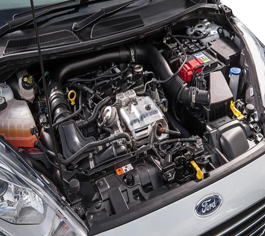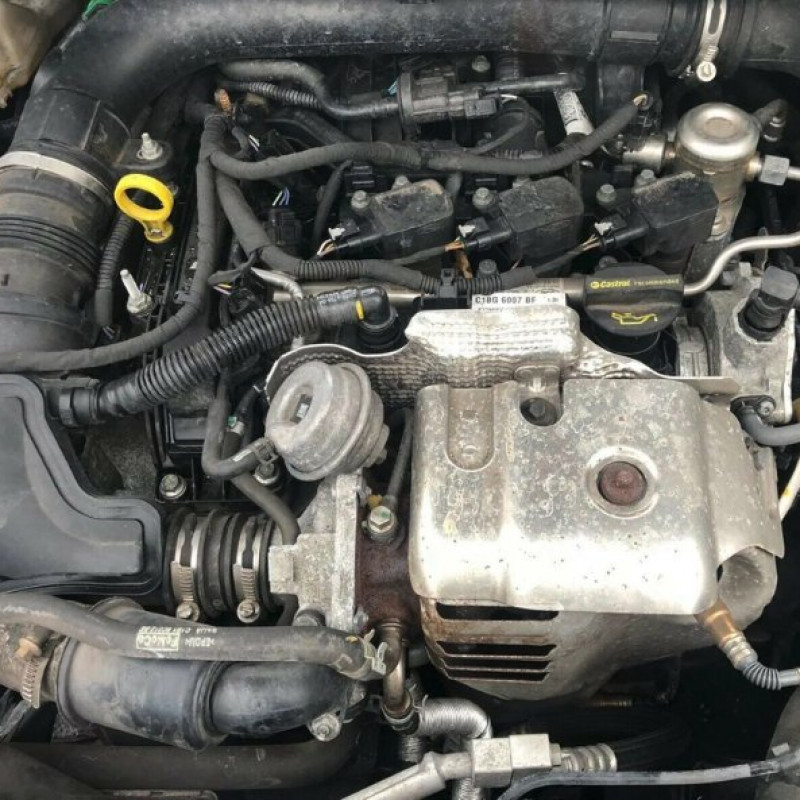Top Ford Fiesta Engine Repairs to Avoid Costly Damage
Top Ford Fiesta Engine Repairs to Avoid Costly Damage
Blog Article
The Future of Engines: Technologies Driving Lasting Power Solutions
As the vehicle market navigates the necessary shift in the direction of sustainability, the future of engines is progressively defined by groundbreaking developments. Electric engine improvements, together with appealing advancements in hydrogen gas cells and biofuels, are reshaping the landscape of power solutions. The development of hybrid systems additionally complicates this evolution, offering both opportunities and obstacles to reduce emissions properly. Paired with the integration of man-made intelligence in engine design, these technical strides increase essential questions about their lasting practicality and effect on conventional paradigms. What might this indicate for the sector and consumers alike?
Electric Engine Developments
The advancement of electrical engine developments represents a crucial change in the aerospace and automobile markets, driven by the urgent need for lasting alternatives to fossil fuels. This change is characterized by substantial improvements in battery modern technology, power electronics, and electric motor style, which jointly enhance the efficiency and performance of electrical engines.
Recent technologies have actually caused the development of lighter, more energy-dense batteries, such as lithium-silicon and solid-state batteries, which assure longer ranges and much shorter charging times. Additionally, enhancements in electrical motor effectiveness, such as using long-term magnets and progressed cooling down systems, allow electrical engines to operate efficiently under differing problems. These enhancements not just enhance vehicle performance yet likewise contribute to a decrease in general energy intake.
In addition, the integration of advanced software application formulas has actually optimized energy monitoring in electrical lorries, enabling regenerative braking and predictive charging techniques. As makers increasingly embrace electric propulsion, the aerospace and automobile sectors are witnessing a standard shift towards greener technologies. This evolution not just fulfills regulative demands but additionally straightens with consumer choices for ecologically pleasant transportation options, solidifying electrical engines as a foundation of future lasting wheelchair.
Improvements in Biofuels
As the aerospace and vehicle markets increasingly focus on sustainable energy sources, innovations in biofuels arise as a complementary service to electrical engines. Biofuels, originated from natural products such as crops, waste, and algae, present a cutting-edge opportunity for decreasing greenhouse gas exhausts and dependence on fossil gas.
Recent study has actually concentrated on enhancing the effectiveness and sustainability of biofuel manufacturing. Second-generation biofuels utilize non-food feedstocks, lessening competitors with food supply and decreasing ecological impact. Furthermore, developments in artificial biology have actually made it possible for the engineering of bacteria to generate biofuels better, causing higher yields and lower manufacturing costs.
Furthermore, the advancement of drop-in biofuels permits seamless assimilation into existing framework, allowing a smoother shift for industries typically dependent on fossil fuels. ford fiesta engine. These gas can be made use of in present engines without adjustments, facilitating their adoption across various sectors
Investments in biofuel technology, together with helpful policies, are vital to drive innovation and scalability. As the international community seeks to battle climate change, biofuels provide a practical, prompt option that lines up with the overarching goal of sustainability in transport and aeronautics.
Hydrogen Gas Cell Innovation
An expanding variety of firms and researchers are exploring hydrogen gas cell innovation as a feasible alternative to standard source of power in transport and energy systems. This technology transforms chemical energy from hydrogen right into power via an electrochemical response, with water as the only by-product, making it an eco pleasant choice.
The core of hydrogen fuel cells is the fuel cell pile, where hydrogen particles are divided into protons and electrons. The flow of electrons generates electrical power, while protons move via a membrane to combine with oxygen from the air, developing water. This procedure results in high performance and low discharges, placing hydrogen fuel cells as a crucial gamer in the change to sustainable power.
Significant innovations have actually been made in enhancing the sturdiness and effectiveness of fuel cells, together with reducing prices through ingenious production strategies. Furthermore, the development of hydrogen manufacturing methods, such as electrolysis powered by renewable resource resources, enhances the sustainability of the general system. As infrastructure for hydrogen refueling expands and manufacturing approaches become a lot more efficient, hydrogen gas cell innovation holds great pledge for decarbonizing different sectors, including heavy-duty transport and stationary power generation.
Hybrid Systems and Their Impact
Hybrid systems stand for a significant development in lasting engine technology, combining typical inner combustion engines with electrical propulsion to optimize power efficiency and minimize emissions (ford fiesta engine). This double approach enables lorries to use both power sources, allowing better adaptability in power usage and decreasing dependence on nonrenewable fuel sources

In enhancement to ecological benefits, crossbreed systems use consumers a feasible change in the direction of totally electric lorries. They reduce array anxiety by incorporating the ease of fuel with the benefits of electric propulsion, making them an eye-catching option for a larger audience.
The Duty of AI in Engine Design
Leveraging sophisticated formulas and artificial intelligence techniques, the automobile sector is progressively integrating synthetic intelligence (AI) right into engine design processes. AI boosts the performance and effectiveness of design by examining substantial datasets to recognize optimum setups and efficiency parameters. This capability permits engineers to mimic various operating problems and anticipate engine habits under numerous situations, considerably lowering the look at this now moment and price connected with traditional prototyping approaches.
Furthermore, AI promotes the development of advanced products and burning processes customized for sustainability. By optimizing fuel performance and decreasing discharges, AI-driven styles line up with international initiatives focused on minimizing the carbon footprint of vehicle engines. Artificial intelligence algorithms can additionally forecast upkeep demands, resulting in enhanced integrity and longevity of engine components.
Moreover, AI is instrumental in the combination of electrification innovations, such as hybrid systems, where it can optimize battery management and energy recuperation processes. As the industry moves in the direction of even more lasting power options, the duty of AI in engine style becomes progressively crucial, driving advancement and enhancing the performance of future engines. Eventually, the cooperation between AI and engine layout advertises a brand-new era of smarter, cleaner, and much more reliable auto modern technologies.

Conclusion
In verdict, the future of engines is being shaped by a merging of cutting-edge innovations that prioritize sustainability. Electric engine improvements, biofuel advancements, hydrogen have a peek here fuel cells, and hybrid systems collectively add to a substantial decrease in emissions and environmental impact. In addition, the combination of expert system in engine style boosts performance and performance. These transformative remedies emphasize a commitment to producing a cleaner, extra lasting automotive landscape, ultimately profiting both culture and the environment.
Electric engine innovations, along with encouraging developments in hydrogen fuel cells and biofuels, are improving the landscape of power remedies. In addition, improvements in electrical motor performance, such as the usage of irreversible magnets and advanced cooling down systems, allow electrical engines to run effectively under varying problems. By optimizing gas efficiency and decreasing emissions, AI-driven designs align with global initiatives intended at decreasing the carbon impact of automotive engines. As the sector moves towards even more sustainable power remedies, find more information the function of AI in engine design becomes significantly crucial, driving innovation and enhancing the efficiency of future engines. Electric engine improvements, biofuel advancements, hydrogen fuel cells, and crossbreed systems collectively add to a considerable reduction in exhausts and environmental effect.
Report this page